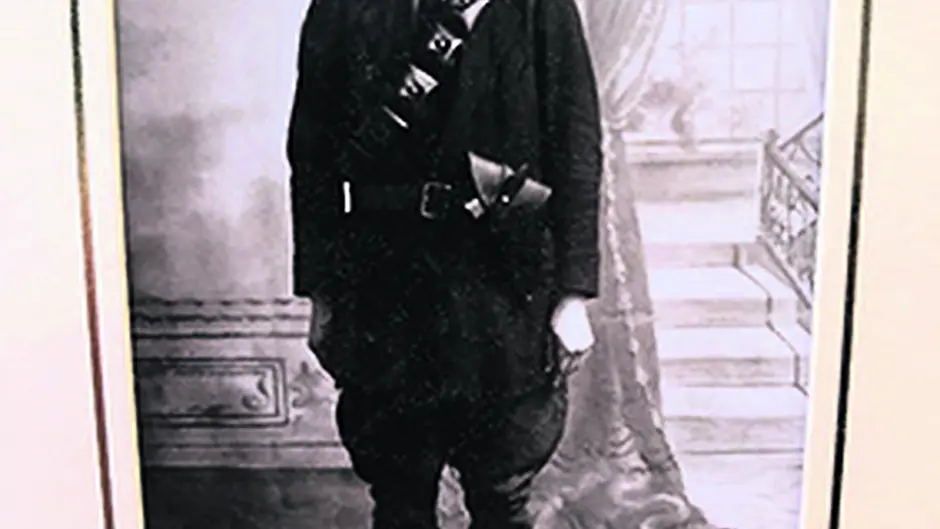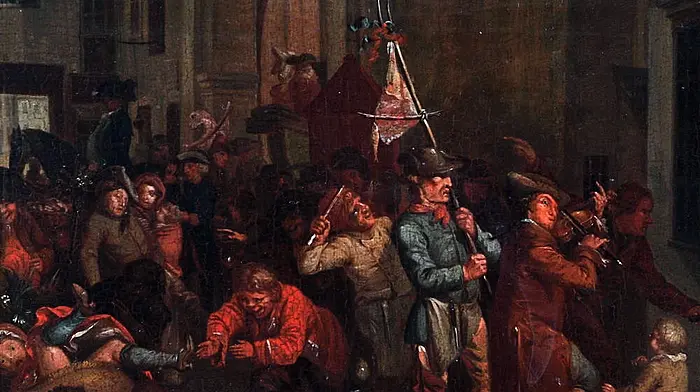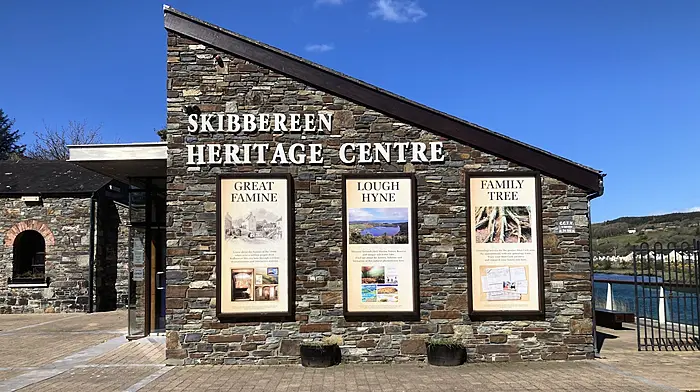As the country prepares to remember and commemorate the fight for Irish independence, brothers Paddy, Timothy, Michael and Jerome Kelly remember the fireside stories about their Uncle William
AS the country prepares to remember and commemorate the fight for Irish independence, brothers Paddy, Timothy, Michael and Jerome Kelly remember the fireside stories about their Uncle William
There are some uncomfortable years ahead for the nation, as the country prepares to remember and commemorate the fight for Irish independence and the vicious Civil War which followed.
The members of one proud West Cork family, who have never forgotten the stories told of their long lost relative, are also preparing to commemorate and indeed celebrate the courage and achievements of their uncle, William Kelly of G company, 1st battalion of the 1st Cork brigade.
William was born on a cold December night in 1895 at the family farm in Clogher, and along with his three sisters and four brothers went to school at Coolmountain.
Today his nephews, the four Kelly brothers, Paddy, Timothy, Michael and Jerome, along with their niece Deirdre Kelly, are working hard to keep their uncle’s memory alive and they are planning a special commemoration at his graveside.
‘Our uncle, William, was a carpenter,’ Michael Kelly said. ‘And he was working in Cork city and there he joined the 1st battalion of the 1st Cork brigade when he was around the age of 21 in 1917. We learned about his service, as young children and teenagers at our fireside from our father, who told us of his service during the Tan War, where he had many escapades travelling back and fourth to England. Then he joined up with the Anti-Treaty forces during the Civil War, as most volunteers from West Cork did.’
During the Civil War, William fought with companies in Limerick and Wexford, where his knowledge of moving to and from the UK proved invaluable.
‘William was captured along with 14 other Anti-Treaty volunteers, including his good friend Denis Lucey from Kilnamartyra, at a little village in Wexford called Ballyhamilton,’ Paddy Kelly said. ‘From there he was taken to the Curragh camp where he was interned without trial. And here he stayed until one day two officers took the prisoners out and demanded that they take the oath of allegiance, to which William replied, “Death before dishonor” .’
Any country at war – with a foreign invader or with itself – holds memories, which are hard for us to reconcile with the citizens and the nation we have today.
‘These were extremely hard times for the ordinary people of the country and the prisoners locked up faced a lot of harassment,’ Michael said. ‘William was treated harshly as were most of the men locked up during the Civil War.
‘We were told that his brother cycled up to the Curragh from West Cork to see William, but was refused access. William got very ill during his internment and was transferred to hospital where he died on April 15th 1923. The cause of his death was stated as TB on his death cert.’
However, as the Catholic bishops had refused to allow Republican prisoners receive burial rites, William’s family collected his body and brought him to Cork city where a sympathetic priest administered a funeral mass at St Peter and Paul’s, and then the family took William to be buried at the family plot in Kilmichael.
For the Kelly family, and especially the four brothers, the actions and the treatment of their uncle has left an indelible mark on their lives.
‘We did have a commemoration at the 50th anniversary of his death,’ Michael said. ‘Now, we have a lot more information about William, although we feel there is a lot more to be discovered. We are all very proud of William and we are immensely of our Republican roots and we’ll continue to ensure that we see justice done to his memory.’







